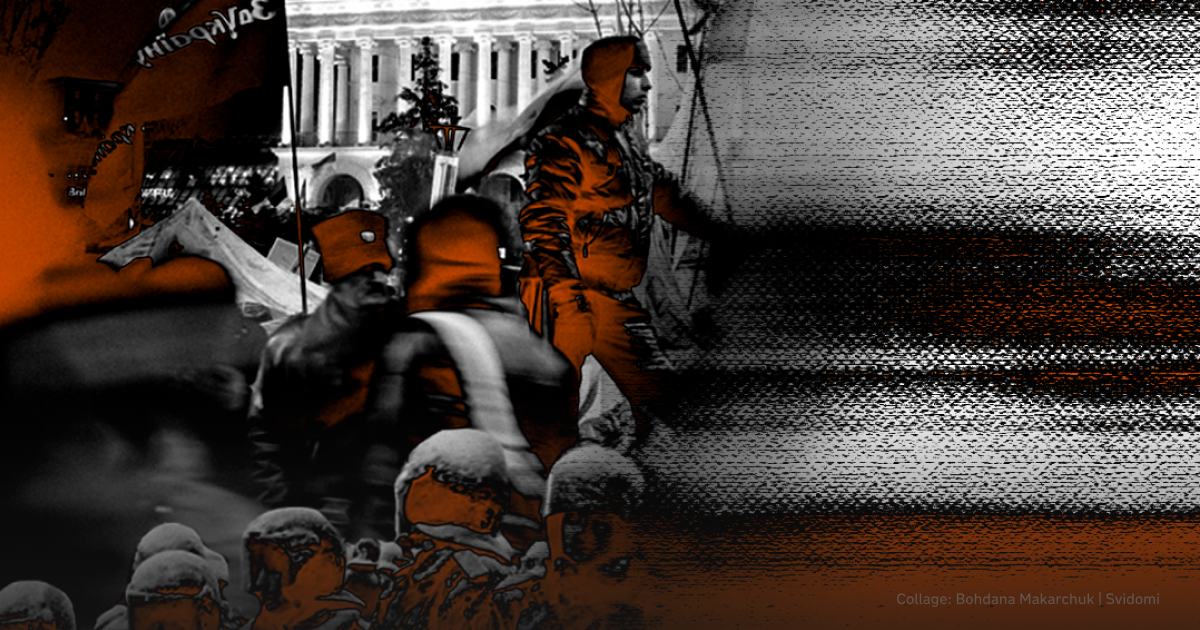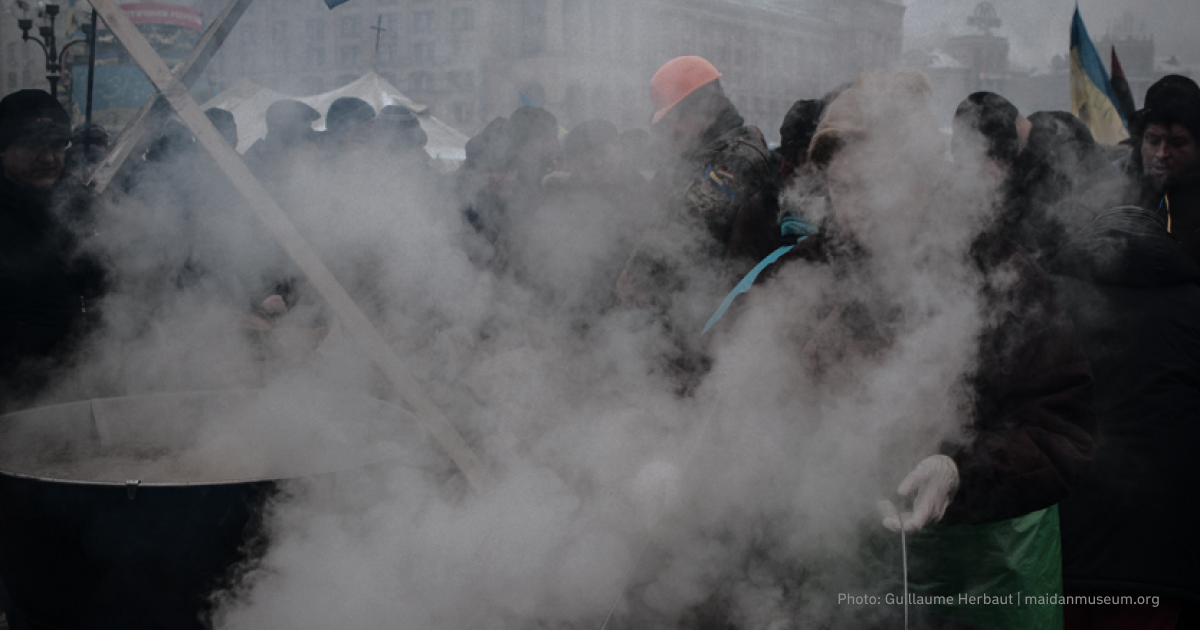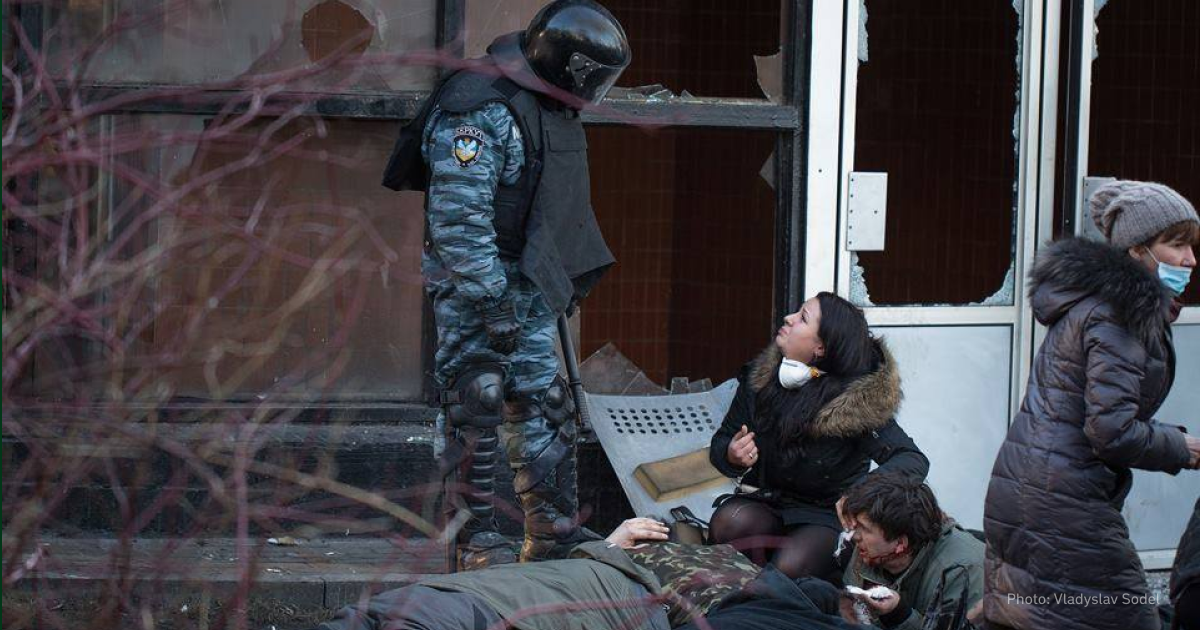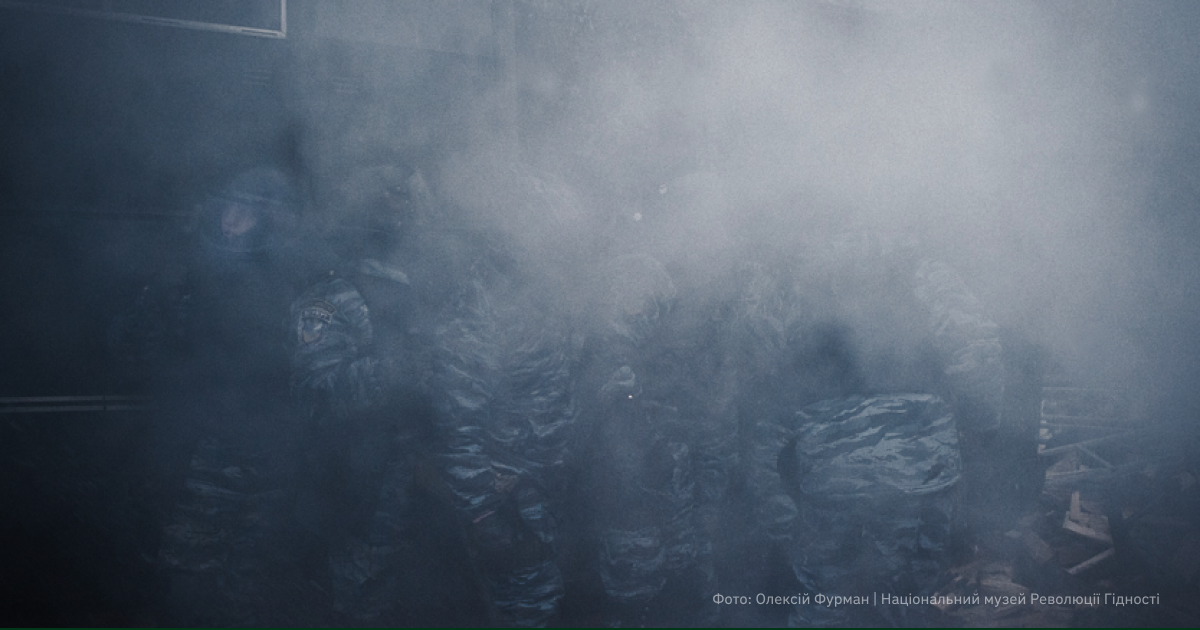The Revolution That Is Being Forgotten: What's the Current Status of the Maidan Cases?

It has been 11 years since the Revolution of Dignity. Euromaidan changed the course of history not only for Ukraine but for all of continental Europe. During this time, Ukraine won the right to determine its development path.
However, 11 years is enough time for some events to begin fading from memory. Every year, Ukrainians commemorate the events and honour the heroes of the Heavenly Hundred. However, national memory has proved to be relatively short. Svidomi spoke with Maryna Lilichenko, a lawyer representing the Heavenly Hundred families since 2014, about the current legal status of the "Maidan cases."
This article sheds light on what has happened to the Maidan cases, why they have been delayed, and what the Revolution of Dignity meant for Ukraine.
What's the current legal status of the Maidan cases?

Across Ukraine, more than 4,700 crimes related to the events of the fall-winter of 2013-2014 are under investigation. Hundreds of cases are still in the pre-trial stage, but most have been brought to trial. Some cases have been resolved or are under review.
While this may sound like an optimistic statistic, in the 11 years since the Maidan events ended, only a few people have been held accountable and imprisoned in court.
Maryna Lilichenko, a human rights lawyer and military service member who represented the families of the Heavenly Hundred from 2014 to 2022, explains:
"One participant in the anti-Maidan movement is currently the only person serving a sentence. Unfortunately, all other cases are either in the appeals or cassation stages or have been closed due to the expiration of the statute of limitations. For example, the largest case — the February 20, 2014 shooting — received a verdict only last year. It sentenced the defendants to prison, but parts of the verdict are acquittals. In essence, we have a verdict but no real accountability."
When did the delays start?
The problem became apparent as early as 2016-2017. Lawyers for the Heavenly Hundred repeatedly called for speedy trials in cases involving assaults and shootings. At the time, however, the judicial system lacked organisation, as judicial reforms were in their infancy — and remain incomplete.
"Only a small percentage of judges took these cases seriously and conducted systematic and regular reviews, even scheduling hearings twice or thrice a month. It was a lengthy process due to the volume of evidence — numerous witnesses, victims and voluminous documentation. Despite our emphasis on the need for expedited, quality reviews, neither all judges nor the state heeded our calls. Statutes of limitations already expired in 2016-2018. Now we are left with what we have," Lilichenko sums up.
This raises the question: can the statute of limitations for the Maidan cases be extended retroactively? Could laws or amendments be introduced to reopen these trials and ensure accountability?
Lilichenko rejects such measures. Ukraine's procedural codes are designed to protect the rights of all parties involved in legal proceedings. Introducing changes only for the Maidan cases would undermine the principles of the rule of law that Ukrainians fought for during the Revolution of Dignity.
"We had enough time for the state to reform the criminal legislation and ensure results not only for these cases but for others as well,"
the lawyer explains.
What about people outside the jurisdiction of Ukraine?
Most of the accused in the "Maidan cases" are currently in the Russian Federation. It is clear that Russia has no intention of voluntarily returning the perpetrators it once employed. We can only try these people in absentia in the hope that justice will be served in the future.
"I hope that if Ukraine wins and international law begins to operate on all territories, we will find these people (if they are still alive). That is why trials in absentia were created. Since 2014, the General Prosecutor's Office has issued international warrants for the arrest of these people through Interpol. However, they are hiding in Russia. That is why no one has been punished yet. We'll see what happens after the war. Hopefully, they will end up in prison and serve their sentences," Lilichenko concludes.
What will ultimately happen to all those accused in the "Maidan cases" remains to be seen — time will tell, or perhaps updates from the Foreign Intelligence Service, the Security Service of Ukraine (SBU), or the Main Intelligence Directorate of the Ministry of Defense will provide answers.

What has led to this situation?
According to Maryna Lilichenko, Ukraine continues to operate in a state where political pressure heavily influences the judiciary. In addition, a critical shortage of judges in Ukraine has persisted for many years and remains unresolved.
"Unfortunately, there has been no political will in the last decade to investigate and bring cases to court. When it comes to judges, they are overwhelmed with big cases. They realise that these cases will consume significant portions of their careers, possibly for years. By the time a case reaches the court, the judge already has a backlog of cases with their deadlines. The judges have done what they can in the time available, treating the Maidan cases as a backlog. There used to be more judges in the system. They may not have been entirely ethical, but at least the system had personnel. The judges realised that since neither the state nor society prioritised these cases, they could take advantage of the situation. This led to the current situation, where deadlines have passed, and few have been held accountable," Lilichenko explains.
This question became critical in 2019. At that time, the Verkhovna Rada failed to pass the "Zakrevska amendments" to the law on the State Bureau of Investigation, which would have overhauled the institution and advanced the "Maidan cases". To push for these amendments, Yevheniia Zakrevska — a lawyer representing the families of the Heavenly Hundred — went on a 13-day hunger strike, joined by many, including Maryna Lilichenko.
"It was a cry from the heart. I supported my colleague Yevheniia Zakrevska because one person alone cannot win the battle. There was also the issue of transferring prosecutors and investigators who were directly involved in the Maidan cases within the Special Investigations Department. For some reason, they were inexplicably unable to pass the competition to join the State Bureau of Investigation. We stressed: 'Give these people who have been investigating these cases for five years a clear path to continue their work. This was a forced step to make sure that the Verkhovna Rada and society heard us. In the end, they did hear us, but as you can see, nothing has changed with regard to the Maidan cases," Lilichenko recalls.
Why have the Maidan cases been forgotten?

Since 2016, public interest in achieving real results from the Maidan has declined, according to Lilichenko. This decline is one of the reasons for the slow progress of these cases.
"It is important for the state to broadcast [the importance of the Revolution of Dignity and Maidan cases — ed.] not just once a year on the anniversary of the Revolution and the shootings, but continuously. This can be done through the work of its institutions. If the institutions don't work – if there are no just verdicts for the victims — what future can we discuss? For the past two years, the Maidan cases have been overshadowed by the full-scale invasion, and everyone is focused only on the current events in the country. People forget the roots of the war and the invasion. Thanks to Maidan, we realised that we could have gone in the wrong direction, and the consequences would have been unknown. That's why it's so important for people to remember," Lilichenko says.
The lack of timely and just judicial decisions has contributed to this partial oblivion. Society no longer reminds the state of these cases, and the state does not prioritise them, which reinforces social indifference. This creates a vicious circle that is difficult, if not impossible, to break. Raising these issues prevents historically significant events from being forgotten.
Every year, the memory of the Revolution fades in the midst of other disturbing and turbulent events. Eleven years after the Revolution of Dignity, Kyiv still has no Maidan Museum. Moreover, in 2020, the SBU conducted searches of representatives of the National Museum without any results in the case. The museum representatives have stated that the case is groundless and politically motivated.
"For me, the best museum is Instytutska Street. When I go there, I feel the emotions of the people who died or helped the wounded. I feel the pain of the first days after Maidan, when the blood was still on the pavement. It's a place of strength, where you remember what happened and understand that such events must not be repeated,"
Lilichenko reflects.
What did the Maidan mean to Ukraine?
The Revolution's importance in Ukraine's history should not be forgotten. The events of those years catalysed the changes that Ukraine underwent and continues to undergo, including changes in the judicial system.
"I am absolutely convinced that Maidan was the driving force behind all the changes in these institutions. There have been changes. Reforms have at least begun. There were none before the Revolution of Dignity. Maidan, thankfully, spurred these changes. It highlighted all the systemic problems that we already knew existed. After Maidan, it became clear that we have a group of people, however small, who are not afraid to speak out about these problems because they know they won't be killed for doing so. When journalists or activists expose certain officials, it's no longer life-threatening. Thanks to those who stood on Maidan, these changes spread to the masses, showing that people shouldn't fear the police, the courts, or the SBU. All this can be changed with our own hands. Of course, some people don't think about it at all, then or now. But this critical mass of active individuals really did change the world and continues to do so. And that is remarkable," says the human rights activist.
The Revolution of Dignity showed Ukrainians — and people in many other countries — that human rights are inviolable. Maidan showed that these rights are worth fighting for, even at the highest cost. The values of Maidan reflect the values of the Ukrainian nation. The Revolution of Dignity signalled that Ukrainians were willing to defend their principles even at the cost of their lives — a commitment they continue to uphold today. The Revolution catalysed the development of Ukraine as a state and society.


